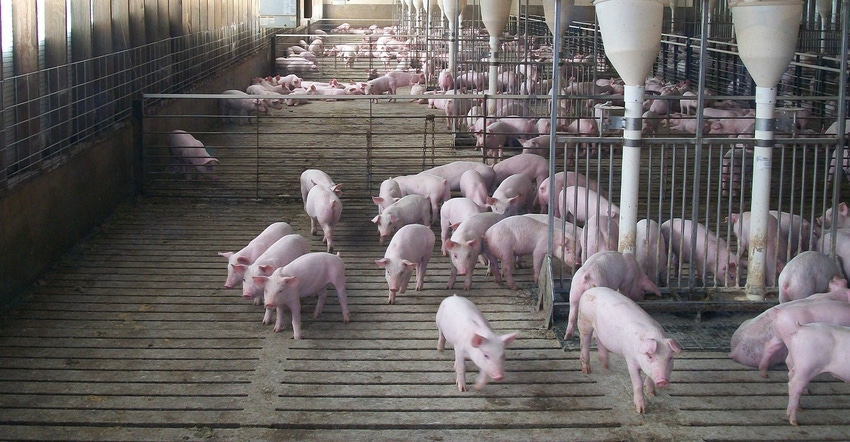August 2, 2019

The Minnesota Board of Animal Health has new outreach materials to inform the public, farmers, veterinarians and markets about how they can prevent African swine fever and other swine diseases.
Specific to ASF, flyers are available in English, Spanish and Hmong languages and provide background on the swine disease, how to prevent it with biosecurity and how it relates to the MBAH's oversight of swine programs.
Another new MBAH flyer is being distributed at select feed stores across the state. The "Know the Signs of Foreign Animal Diseases" flyer is designed for hobby or backyard swine owners. It depicts examples of ASF clinical signs they should look for in their animals while also outlining foot and mouth disease and classical swine fever.
ASF is a highly contagious swine disease that has not been detected in the U.S. to date.
The virus can cause a wide range of clinical signs in infected pigs and can spread very rapidly. Some signs of an ASF-infected pig include fever, skin discoloration, loss of appetite, vomiting, diarrhea, difficulty breathing, weakness and sudden death.
ASF has been found in many countries around the world including Africa, Eastern Europe, China, Vietnam and Mongolia. ASF is not known to affect human health and doesn’t transmit from pigs to humans. There are no treatments or vaccines for ASF.
MBAH shares these disease prevention strategies:
Separate new swine. Separate new pigs before bringing them into your herd and monitor them for signs of disease.
Quarantine the sick. If pigs become sick, separate them and contact your veterinarian.
Avoid other operations. Don’t visit other swine farms. If you must visit another farm, take a shower and wash your clothing before and after your visit.
Be mindful of equipment. Vehicles and tools can carry disease. Don’t share equipment with other farms and clean tools after use.
Limit visits. Keep visitors to your farm to a minimum and reduce on-farm traffic as much as possible.
Question visitors. Ask all visitors about recent travel outside the country. Do not let anyone who has been in an ASF-affected country onto your farm for at least five days after they enter the U.S.
To help keep ASF out of the U.S. after international travel:
Declare farm visits. Declare visits to foreign farms or interactions with foreign livestock upon return to the U.S.
Know import restrictions. Be aware of U.S. import restrictions on pork and pork products.
Declare ag products. Declare all agricultural products on your U.S. Customs form. Keep receipts and original packaging for agricultural products as proof of their country of origin.
Comply with inspection. Cooperate with inspectors examining your items to be sure they do not contain harmful foreign pests or diseases.
Source: Minnesota Board of Animal Health, which is solely responsible for the information provided and is wholly owned by the source. Informa Business Media and all its subsidiaries are not responsible for any of the content contained in this information asset.
You May Also Like




